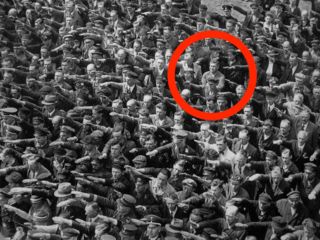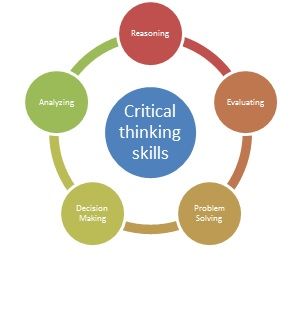Cognition
A Survival Guide for the Era of Fake News
Critical thinking is now more important than ever before.
Posted January 15, 2018
Last year I was invited to give a lecture on Critical Thinking to the US Navy. I opened my presentation with a story I’d read in Reader’s Digest magazine as a child. It’s an old story you may have heard before, but it’s a perfect introduction to the importance of critical thinking. Here’s how it goes:
A newlywed husband observing his wife preparing a roast beef was shocked to see her slice an inch off the end of the meat and toss it in the trash. “Why did you do that?” he asked. She shrugged and replied, “I don’t know; it’s what my mother always did.” Baffled that anyone would waste good meat, and curious to learn the answer, he phoned his mother-in-law and put the question to her. Her response was the same as her daughter's, “It’s the way my mother did it.” Knowing his wife’s grandmother was still alive, he phoned her next. Upon hearing the question, the older woman laughed, “Oh my, I don’t do that anymore. When I was younger and poorer, I only had one pan and a roast wouldn’t fit in it unless I cut the end off.”
At some point in our lives, all of us have heard these words, “That’s how we’ve always done it.” These six words are a tip-off that it’s time to reexamine a technique, a method, or a course of action, and the motivation behind it.
In many organizations people fail to question everyday practices, processes, and procedures and repeat them by rote. There are traditions we accept that enslave us and hold us back. Much of our thinking is biased, partial, and uninformed. To be fair, that’s because of what we are taught; and it doesn’t occur to us to question it. On top of that there are people and organizations with vested interests who will resist change in order to not lose money, power, influence, market share, seniority, and so forth. That resistance can take the form of denial, misdirection, obfuscation, or even punishment of those who push for change.
I regularly come across suspicious material on social media, in advertising, and even word-of-mouth. When I begin to notice that I am being told what to think by multiple sources, it triggers my critical thinking to kick in. Today we are inundated with lies, propaganda, and fake news by politicians, government, corporations, and the media. We need to protect ourselves by developing critical thinking skills.

Critical thinking is about forming a judgment. It is about examining and evaluating information that we have received. Testing it, applying scientific methods, and interpreting it. However, we must be aware that it will be influenced by our personal motivations, such as beliefs, assumptions, and experiences. In order to be a critical thinker, we must become aware of our biases. We must ask ourselves, “Do I have the integrity and humility to question my own prejudices?" If so, we can be much more objective in our assessments.
To be a critical thinker, we must ask the right questions. Some examples include: “Will you be more specific?” “Can you give me more details?” “Can you show me an example or give me a demonstration?” “How can I verify that?” “Why is this a problem?” “How can we look at this from a different perspective?” “What is your proof?” “Is your proof based on scientific method or is it anecdotal?” “Can this situation/condition be duplicated or is it coincidental?”
Critical thinkers ask, “What is the evidence?” Evidence must be comprehensive, sufficient, and honest. It should be compared to known theories, laws, axioms, principles, definitions, and models. The critical thinker should test it against his or her own information, data, facts, observations, and experiences, along with those of people they trust. Critical thinking can also rely on common sense which is the experiential knowledge that is shared by most people.

Critical thinkers use logic. They ask, “Are all the premises true?” A premise is a proposition upon which an argument is based. They are the reasons from which a conclusion is drawn. When someone presents you with an argument, make sure they aren’t baffling you with logical fallacies (you can see the most common logical fallacies here, so you can arm yourself against their use - you’ll be surprised by how often they come up).
To be a critical thinker, you must question the purpose, the goals, and the objectives of the source of the information. For example you might ask, “Who funded the research or study?” or “Who stands to gain from this?”
Thinking critically is about deciding what to believe. Critical thinkers do more than question authority, they question everything. Making inquiries is also the beginning of creative thinking. And, challenging the status quo is how innovative ideas are born. Best of all, when you stop accepting unevaluated information as truth, you’ll be amazed at how liberating it is.
Robert Evans Wilson, Jr. is an author, humorist/speaker and innovation consultant. He works with companies that want to be more competitive and with people who want to think like innovators. Robert is the author of ...and Never Coming Back, a psychological mystery-novel about a motion picture director; The Annoying Ghost Kid, a humorous children's book about dealing with a bully; and the inspirational book: Wisdom in the Weirdest Places. For more information on Robert, please visit www.jumpstartyourmeeting.com.




